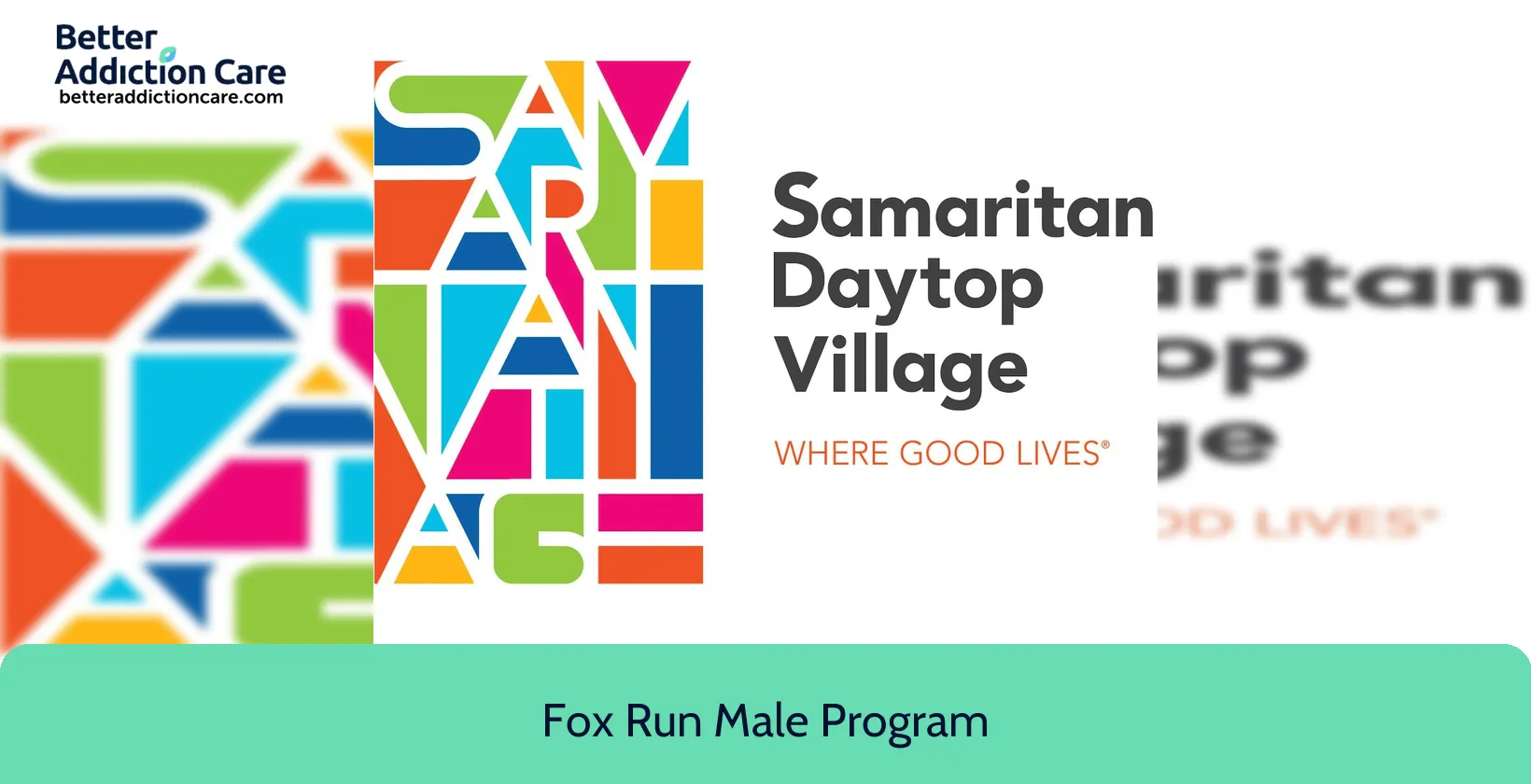Meadow Run - Female Program SRR

Overview
Samaritan Daytop Village, situated in Rhinebeck, New York, offers a wide range of behavioral health services, such as substance use treatment, mental health care, and housing support. The center provides on-site medical care, FDA-approved detoxification, and residential and outpatient treatment for individuals aged 18 and older. Adolescents, Families, and Seniors are all served by specialized programs, which include a women-only veterans' facility. Cognitive Behavioral Therapy (CBT), individual and group counseling, crisis intervention, and vocational services are all treatment approaches that are founded on evidence-based practices. The organization prioritizes a comprehensive recovery model that includes permanent housing services, aftercare programs, and peer support to guarantee long-term recovery and self-sufficiency.
Samaritan Daytop Village also provides employment services to assist clients in their reintegration into society. These services include career counseling, literacy training, and job placement. The center's housing programs are designed to provide assistance to families and individuals who are experiencing homelessness or housing instability. A lively community center that provides a variety of activities to maintain seniors' social connections and engagement is a valuable resource. The center's veteran services are dedicated to the treatment of substance use, post-traumatic stress disorder (PTSD), and life adjustments following military service. Samaritan Daytop Village guarantees comprehensive care that is customized to the unique requirements of each client by employing a holistic and individualized approach.
Samaritan Daytop Village maintains exceptional standards of care, guaranteeing that clients receive professional, compassionate assistance, as evidenced by its accreditation by CARF (Commission on Accreditation of Rehabilitation Facilities).
Meadow Run - Female Program SRR at a Glance
Payment Options
- Cash or self-payment
- Medicaid
- Medicare
- State-financed health insurance plan other than Medicaid
- Private health insurance
Assessments
- Comprehensive substance use assessment
Age Groups
- Young adults
- Adults
Ancillary Services
- Case management service
- Integrated primary care services
- Suicide prevention services
- Domestic violence services, including family or partner
- Early intervention for HIV
Highlights About Meadow Run - Female Program SRR
7.49/10
With an overall rating of 7.49/10, this facility has following balanced range of services. Alcohol Rehabilitation: 8.00/10, Drug Rehab and Detox: 7.85/10, Insurance and Payments: 6.53/10, Treatment Options: 7.58/10.-
Alcohol Rehabilitation 8.00
-
Drug Rehab and Detox 7.85
-
Treatment Options 7.58
-
Insurance and Payments 6.53
Accreditations
State mental health department:
State mental health department accreditation refers to the process of evaluating and certifying the quality and standards of a state's mental health department, ensuring that it provides high-quality services and meets specific criteria for mental health care. The accreditation process is performed by a third-party organization and helps to improve the overall care and treatment of individuals with mental health conditions.
State department of health:

Government agencies issue State Licenses, which grant rehabilitation organizations permission to conduct their operations lawfully within specific geographic regions. Licenses needed to operate are typically determined by the type of rehabilitation program offered by the facility and its physical location.
SAMHSA certification for opioid treatment program (OTP):
Accreditation by the Substance Abuse and Mental Health Services Administration (SAMHSA) for Opioid Treatment Programs (OTPs) signifies that a program has met strict standards for providing high-quality care to individuals with opioid use disorders. It assures patients, families, and communities that the OTP follows evidence-based practices, employs qualified staff and maintains a safe and effective treatment environment. This accreditation reflects the program's commitment to addressing the opioid epidemic and promoting recovery.
Treatment At Meadow Run - Female Program SRR
Treatment Conditions
- Alcoholism
- Substance use treatment
Care Levels
- Hospital inpatient treatment
- Long-term residential
- Halfway house
Treatment Modalities
- Cognitive behavioral therapy
- Substance use disorder counseling
- Trauma-related counseling
- Smoking/vaping/tobacco cessation counseling
- Treatment for gambling disorder
Ancillary Services
Languages
- Sign language services for the deaf and hard of hearing
Additional Services
- Pharmacotherapies administered during treatment
- Mentoring/peer support
- Breathalyzer or blood alcohol testing
Special Programs
- Clients with co-occurring mental and substance use disorders
- Criminal justice (other than DUI/DWI)/Forensic clients
- Clients with HIV or AIDS
- Clients who have experienced trauma
- Clients who have experienced sexual abuse
Get Help Now
Common Questions About Meadow Run - Female Program SRR
Contact Information
Other Facilities in Rhinebeck

7.69

7.45
DISCLAIMER: The facility name, logo and brand are the property and registered trademarks of Fox Run Male Program, and are being used for identification and informational purposes only. Use of these names, logos and brands shall not imply endorsement. BetterAddictionCare.com is not affiliated with or sponsored by Fox Run Male Program.
